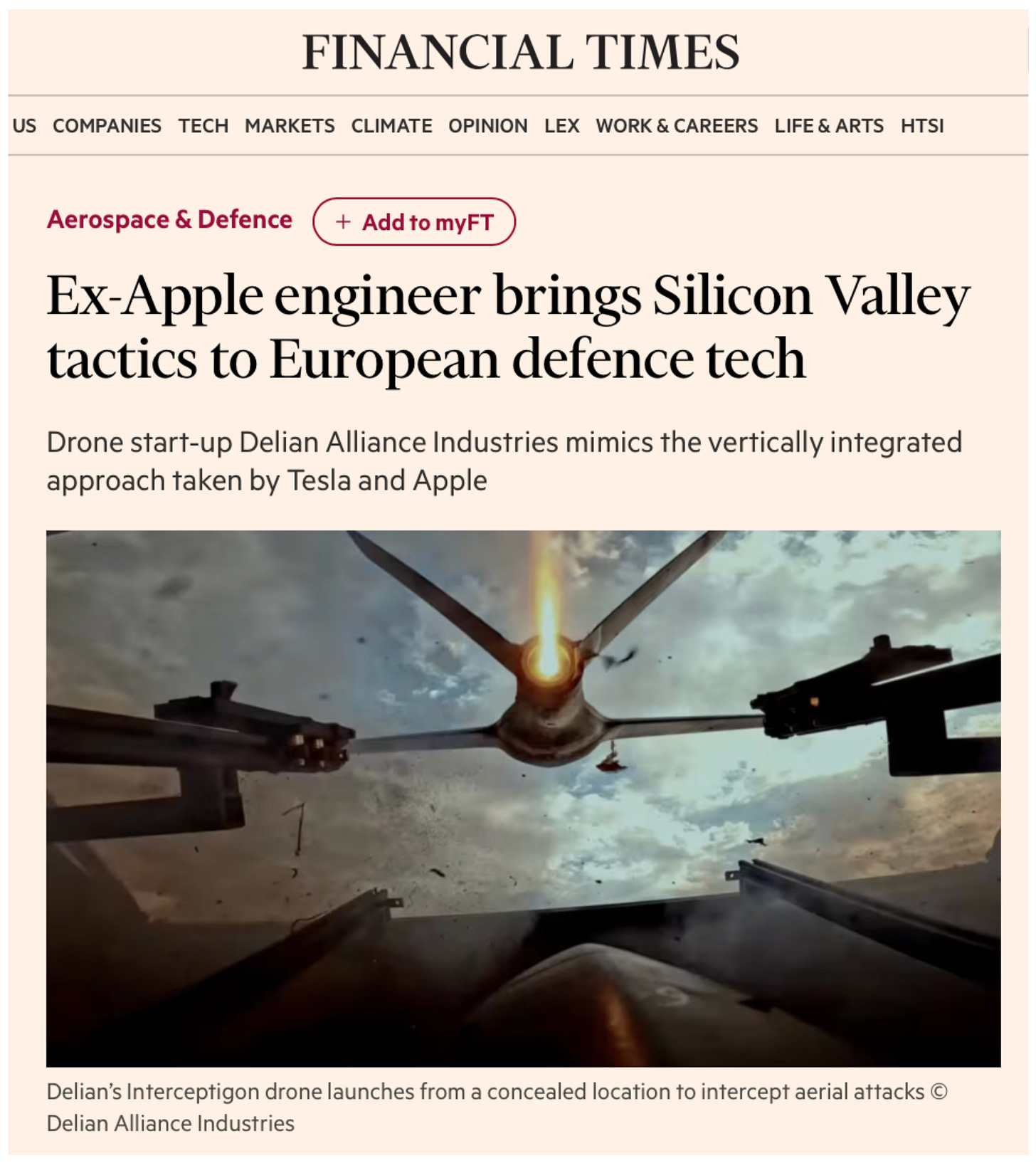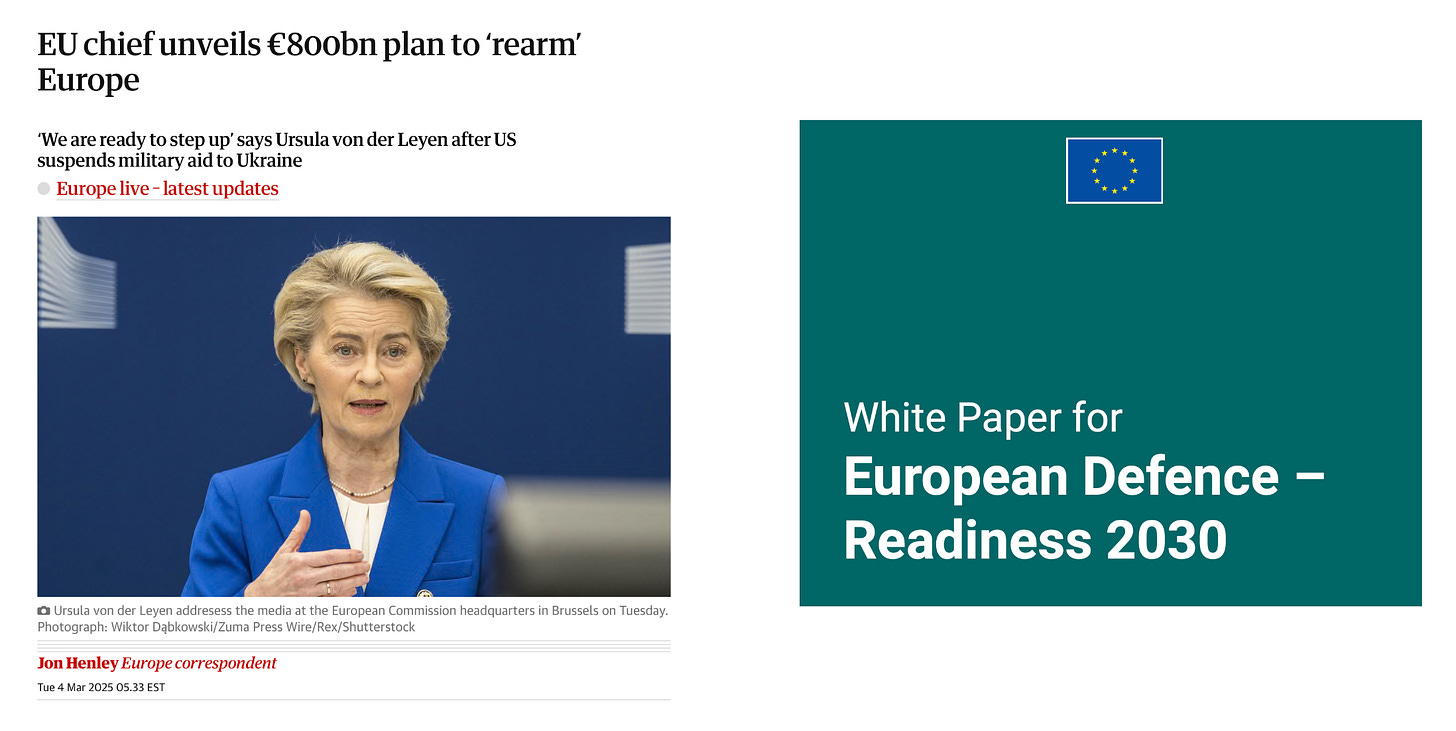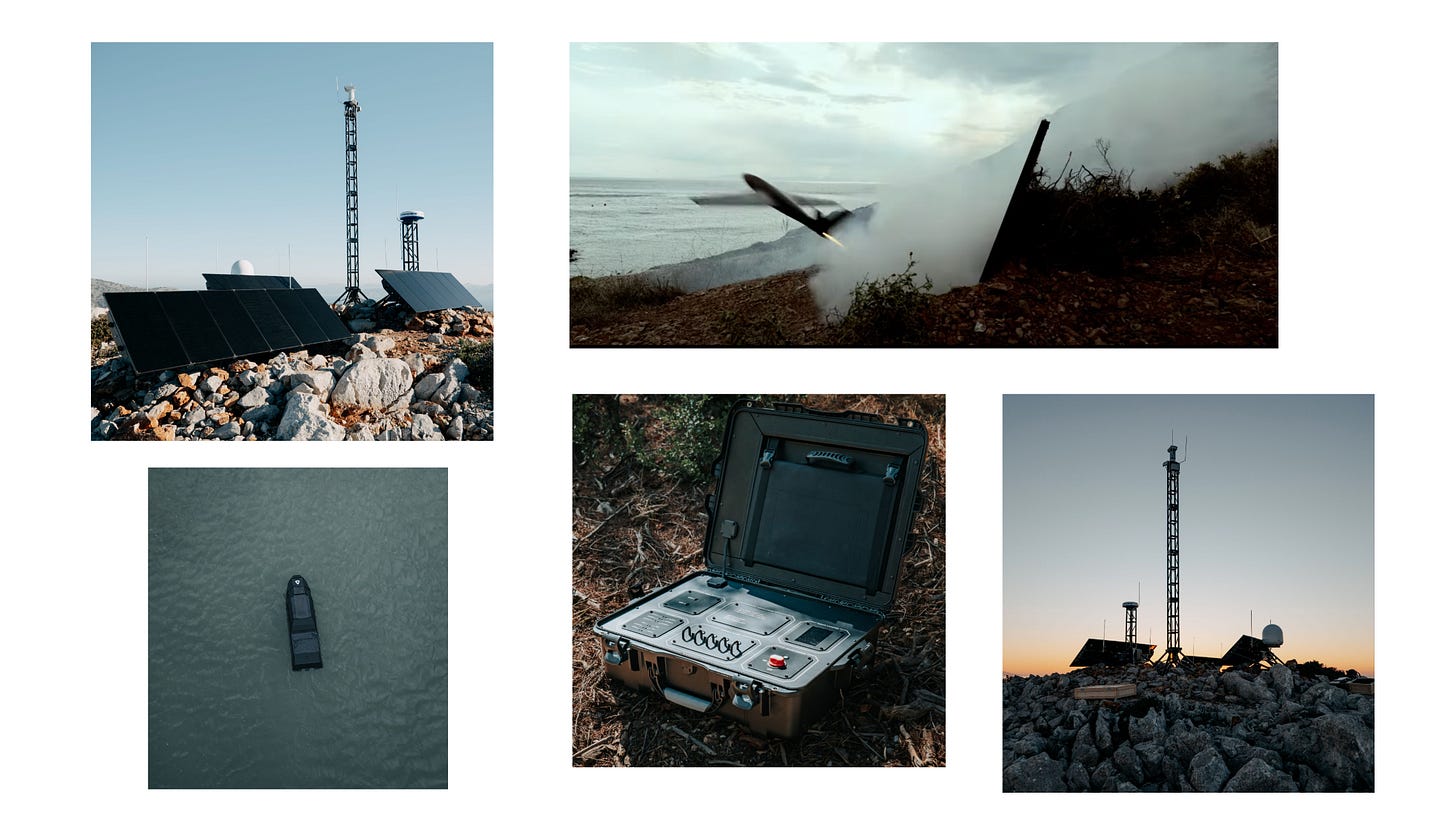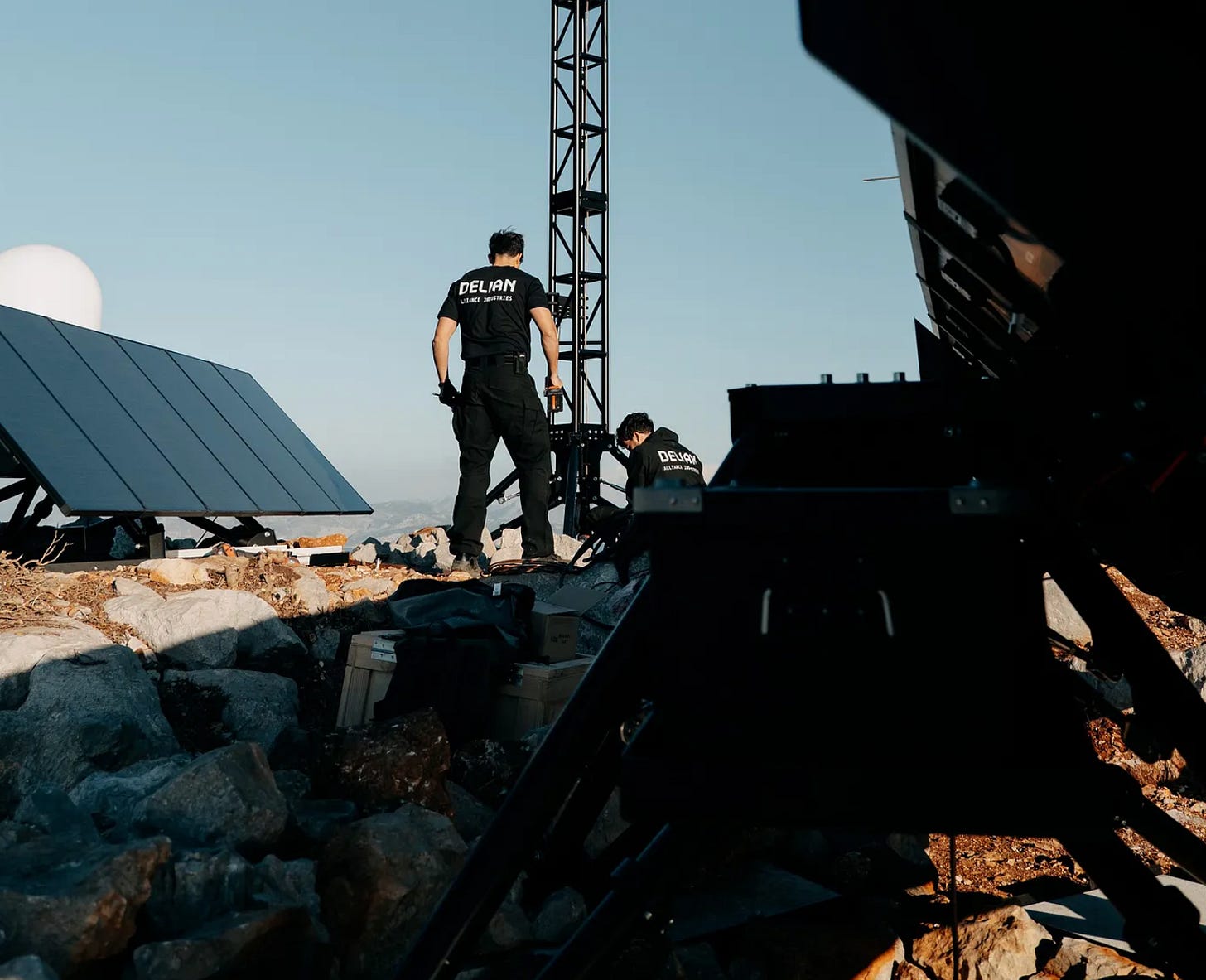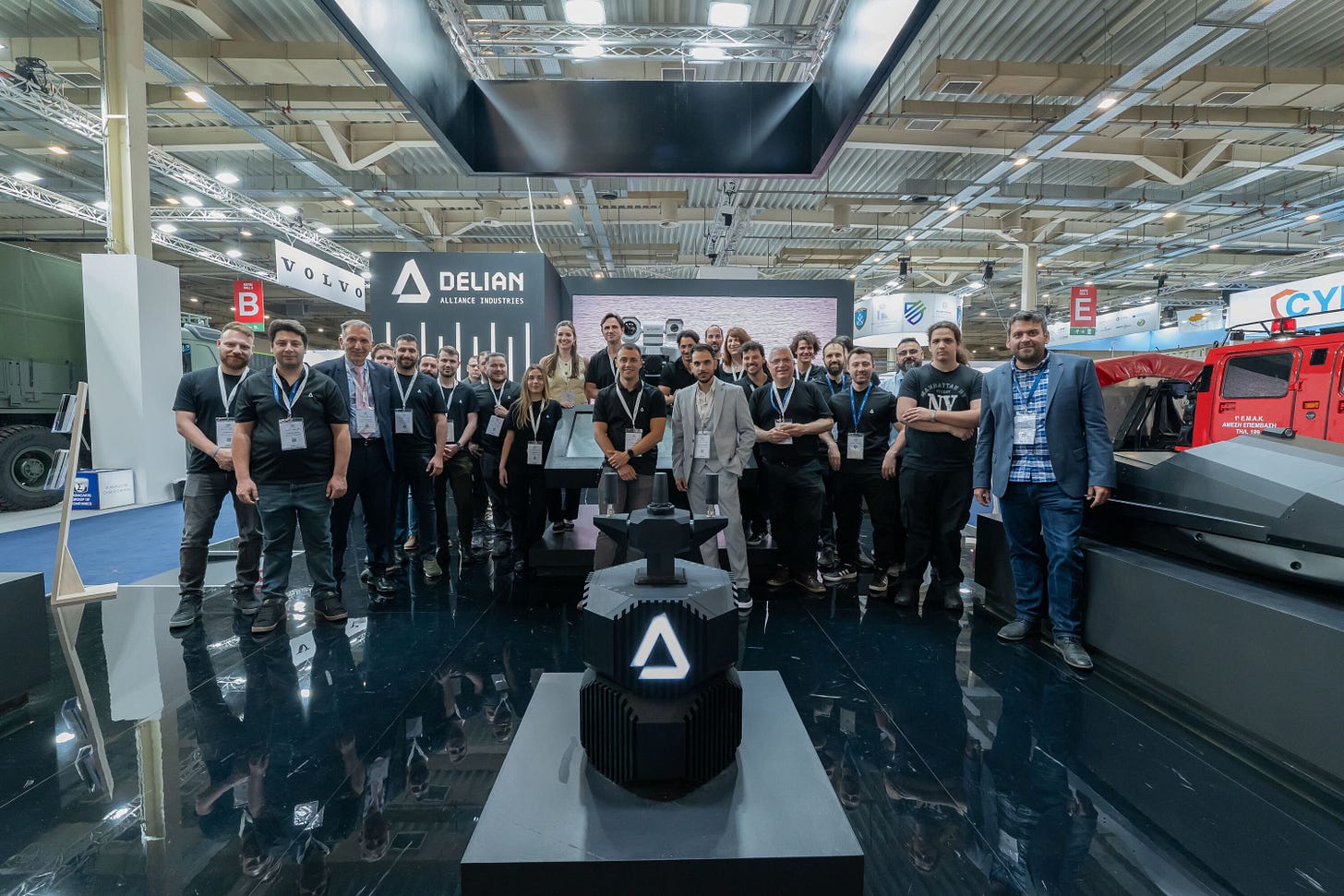Defense AI company Delian Alliance Industries raises a $14M Series A
No one is coming to save Europe. We must build new primes here and now.
Our competitor is time
We are witnessing a rare convergence of strategic urgency, political momentum, and technological readiness in European defense. At a time when NATO allies are committing to invest 5 % of GDP annually in defense and Europe’s fiscal rules are being suspended via Readiness 2030 to mobilise close to €1 trillion for defense spending, one thing is clear: Europe cannot import its future security. It must build it now.
Today, I’m excited to share that Air Street has co-led a $14M Series A into Delian Alliance Industries, a company redefining European defense with vertically integrated, AI‑powered systems that autonomously sense and strike across land, air, and sea. Delian’s full‑stack product portfolio, ranging from GPS‑denied navigation to electronic warfare and autonomous effectors, is built in Europe, for Europe, breaking from the slow legacy production model.
Europe’s strategic turning point
Europe is in the midst of a strategic pivot, driven by the codification of urgency across major initiatives. NATO’s Updated Defence Production Action Plan, approved in February 2025, commits allies to accelerate industrial capacity, aggregate multinational demand, and deliver critical capabilities at pace reflecting a broader shift in doctrine. Notably, in 2024 NATO defense equipment spending more than doubled compared to 2014, signaling pressure to restock munitions, modernize systems, and streamline industrial responsiveness.
Meanwhile, the EU’s Readiness 2030 plan (previously “ReArm Europe”) is set to mobilise close to a trillion euros in defense investment via five pillars, including the €150 billion SAFE instrument for joint procurement and activation of the national escape clause under the Stability and Growth Pact to unlock fiscal flexibility. Readiness 2030 explicitly emphasizes buying together, buying better, and buying European with at least 65 % of procurement targeting equipment sourced from EU, EFTA, or Ukraine.
This rare synchronization of NATO commitments and EU mechanisms means financial and political alignment at magnitude: defense investment at 5 % GDP, a pan‑European procurement vehicle validated with €150 billion in capital, and streamlined fiscal rules that bypass traditional constraints.
Delian: The New Prime
Delian is building what we can be thought of as an Iron Dome fit for the era of autonomous warfare - a software-defined defense shield that connects any sensor to any effector, enabling autonomous detection and defeat of incoming threats across land, air, and sea. This AI-powered kill chain gives democratic nations an edge in asymmetric and autonomous warfare.
Delian represents a fundamentally different approach. Founded by Dimitrios Kottas, a former Apple Special Projects Group engineer, Delian combines the agility of Silicon Valley with the urgency of European deterrence. The company builds everything in-house: autonomous surveillance towers, edge compute comms systems, GPS-denied navigation modules, loitering munitions, and anti-UAV electronic warfare.
As Kottas puts it: “Our competitor is time. Our adversaries are developing and procuring things at speeds we cannot imagine…Our national security processes cannot support such speeds right now because they are tuned for peace time.”
This is what Europe needs to defend itself against autonomous war: rapid iteration, vertical integration, and manufacturing close to the battlefield. Just as Anduril proved in the US, Delian shows that Europe, too, can produce its own “new primes.”
From Aegean to Arctic
Delian’s roadmap aligns closely with the defense needs of middle powers, countries like the UK, Poland, Finland, Greece, Estonia, Sweden and the UAE, that sit on the fault lines of rising geopolitical tension. Their budgets can’t support Cold War-style force structures. They need smart systems that are inexpensive, scalable, and built for autonomy-first warfare: swarms, sensor networks, software-defined kill chains.
The next war won’t be won by stockpile - it will be won by systems that deploy in days, not decades.
Delian already has a growing deployment underway in a NATO country and is seeing significant international demand for its systems that are adapted to present and future-day conflicts.
What comes next
Europe must now shift decisively from defense at the speed of bureaucracy to defense at the speed of software. That means rebuilding a native defense tech ecosystem that values mission autonomy, open architectures, and rapid fielding. It means reforming export controls and removing barriers for dual-use founders. And it means investing in the talent, infrastructure, and financing mechanisms to ensure that Europe doesn’t just buy sovereignty - it builds it.
At Air Street, we believe the future of defense is sovereign, software-defined, and born on the edges of conflict. Delian is proof that it’s already underway.




